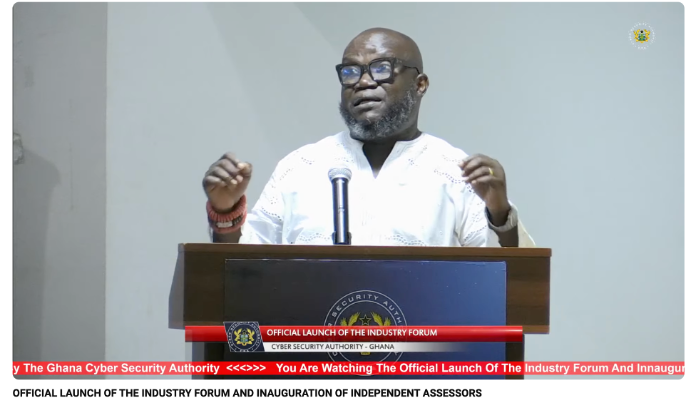Good Governance And Accountability Through Stakeholder Participation In Public Financial Management
Public Financial Management (PFM) has certainly evolved from its traditional focus on financial compliance and control to become a key foundation for macro fiscal analysis and policy making.
Poor financial management by government impacts on public services, living standards, and life chances. It adversely affects investor confidence, economic performance and trust in government. Again, in the case of crucial decisions of national economic importance, poor PFM means that government’s decisions are based on incomplete, inaccurate and out-of-date data with its attendant governance and accountability challenges.
Improving PFM is critical important challenge, requiring concerted and co-ordinated action at national and local levels. Such action will help to realise the key objectives of PFM which are (i) maintaining a sustainable fiscal position, (ii) the effective allocation of resources, (iii) and the efficient delivery of public goods and services.
PFM and Good Financial Governance
PFM is simply about innovations in good governance. Good governance is, among other things, participatory, transparent and accountable in nature. It is also effective and equitable, and it promotes the rule of law. It ensures that political, social and economic priorities are based on broad consensus in society and that the voices of the poor and the most vulnerable are heard in decision-making over the allocation of development resources which is the essence of good financial governance.
Good financial governance approach sets out the three key principles (legitimacy, accountability and the rule of law) that have prevailed in the field of good governance in recent years in terms of public finance:
- Legitimacy means the democratic legitimization of financial policy decisions including proper public participation and ensuring gender balance.
- Accountability involves government’s obligation to be accountable and thus requires government activities to be transparent. How effectively and efficiently public funds are used depends very much on the extent to which society and its citizens can hold the state accountable and act accordingly. Accountability is crucial to good financial governance and for that matter good public financial management.
- The rule of law requires public financial policy and management to operate within legal framework that is generally valid, fair and impartial. The rule of law governing public finance primarily ensures that funds can be reliably forecast and controlled.
Key Developments in PFM in Ghana
Ladies and gentlemen, permit me at this juncture to briefly touch on PFM Reforms in Ghana. A review of PFM system in Ghana was conducted in the 1990s and I stand to be corrected, the following weaknesses were revealed:
- Weak budget formulation, preparation and lack of ownership by MDAs and MMDAs.
- Weak expenditure monitoring and control.
- Lack of robust accounting and monitoring system.
- Inadequate flow of information between key players (stakeholders particularly BoG, MoF and CAGD).
- Lack of quality and timely data on Government resources.
- Outmoded regulatory framework.
These weaknesses led to the launching of PFM Reform Programme (PUFMARP) which aimed at improving the weaknesses. PUFMARP consisted of a number of components including:
- Budget reforms, such as the MTEF
- Accounting and Financial Reforms such BPEMS, now GIFMIS
- Payroll Reforms (IPPD)
- Fiscal Decentralization
- Review of Financial Laws
Ghana has made some progress. Key PFM achievements so far include the following:
- Legislative reviews in early 2000 to support the various reforms and today we have PFM Bill.
- The introduction of the Medium Term Expenditure Framework (MTEF).
- The integration of the erstwhile revenue agencies into the GRA and its modernization.
- Fiscal Decentralization (MMDAs empowerment).
- Payroll reform initiatives.
- Budget and Public Expenditure Management Systems (BPEMS) from 2003 – 2007 which was re-launched into the GIFMIS.
- Implementation of GIFMIS project from 2009 to date
- Adoption of the IMF Government Finance Statistics (GFS – 2001).
- Production of a harmonised Chart of Accounts for MDAs and MMDAs.
- Improved Systems for HR and Payroll Management.
- The migration from Activity Based Budgeting to Programme Based Budgeting for MDAs.
- Aid and Debt Management Strategy Development.
- IPSAS Implementation Project with ICAG Supporting.
Stakeholder Participation
From the achievements enumerated in Ghana’s PFM reforms so far, it is vividly clear that stakeholder engagement or participation is critical and truly sin-qua-non in PFM reforms and innovations.
Accordingly, delivering good PFM involves all individuals and government units, Ghana Audit Service in not an exception, whose functions is to regulate, organise and control the use of public resources. Alongside government institutions – Ministry of Finance, Ghana Revenue Authority, Financial Control Institutions, line ministries and downstream authorities, Parliament, civil society and the donor community are important. Actions of these players (stakeholders) are interlinked in a complex manner, and determined by the cultural conditions of the Country which, in turn, significantly affect the structure of any PFM reforms and innovations. Such is the stakeholders’ engagement or participation in PFM today i.e. stakeholder engagement or participation journeys which continue to shape and improve public financial management.
The focus of relationships and reputation with stakeholders in the areas of sharing information and acting transparently which engenders good participation will correlate to the success of PFM reforms and for that matter good governance and accountability.
Challenges to Realizing Good Governance and PFM Reform in Ghana
Nevertheless there are some challenges which require attention so as to realise the good governance and PFM reform in Ghana.
There is no doubt, however, that so far the PFM reform in Ghana is very robust and has the potentials for promoting good governance with a view to enhancing the general well being of the citizenry in the Country. But like many good and robust government programmes in the past, the PFM reform may suffer from lack of thorough implementation owing to a number of challenges. These challenges may include but are not limited to the following:
- Lack of Strong Institutions: There is no doubt that strong institutions can serve as a framework for good governance and PFM reform in Ghana since the actualization of the purpose of government is done through the governance processes, which require institutions, in addition to personnel and good behaviour. And, it is often argued that, the stronger the institutions, the better the governance process, in terms of satisfying the needs, yearnings and aspirations of the people. Although in ordinary usage, most people tend to define institutions as organisations or agencies, notably a ministry, a directorate, a school, a hospital and so on. However, conceptually, it is not organisations and agencies, per se which are institutions, but the entrenched practices and arrangements, which order and regulate socio-economic and political relations and interactions in these organisations or agencies. There are both governmental and non-governmental institutions, which contribute to good governance and effective Financial Management in every society. The main ones are the executive, the judiciary, the legislature, civil society, law enforcement agencies and so on. These institutions are necessary for effective functioning of the state and for attaining the purposes of governance. Even the much-touched economic reforms cannot succeed without credible and strong institutions, which are necessary for good governance and effective financial management. In other words, unless poorly functioning institutions are fixed, good governance and effective PFM reform may not be realized.
- Bad Leadership: Leadership is one of the most critical components in human organisations, especially in governance. That is why whenever an organisation is not working, people look for leadership to make it better. Leadership is about trust, responsibility and responsiveness. It is about holding a position of responsibility and exercising it responsibly, fairly, selflessly and conscientiously. Leadership could be inept, incompetent and ineffective, or it could be purposeful, dynamic, efficient, effective and responsible. There is a world of difference in the way countries are governed or systems of government are run, and the difference is accounted by the type, nature and character of leadership, among other things. Good effective leadership yields positive, desirable and beneficial socio-economic development, while bad and ineffective leadership could create chaos, instability and general misery for the populace. Indeed, the PFM reform may not be realized in the face of bad leadership.
- Non-Compliance to Due Process: Due process can be defined as adherence to procedures, methods, rules and regulations in the utilisation of public funds at the various levels of responsibility, such as ministries and departments. Due process is all about good governance. Government organisations that hardly observe due process (existing rules and regulations) as contained in the constitution, civil service rules, financial instructions and other relevant laws do exhibit some or all of the following characteristics: inability to curb excess expenditure; defective internal control system (poor internal audit, internal check and supervision); misapplication of funds; insider abuses; negligence of duty due to poor supervision; non-budgetary and over-budgetary expenditure, as well as, poor budget process; budget failures; poor staff recruitment, training and retraining policies; and gross indiscipline among staff. There can therefore be no good governance and effective PFM reform in Ghana unless due process is followed in the conduct of our public organisations.
- Ineffective Civil Society Organisations (CSOs): A CSO can be defined as an independent voluntary association of people acting together on a continuous basis, for some common purpose, other than achieving government office, making money or illegal activities. CSOs by characteristics have to be independent from government control and not seeking to challenge government as a political party. CSO is a term comprising of interest groups, pressure groups and private voluntary organizations.
With the actualization of democratic system of governance, the CSOs have been making effort educating and sensitizing public on the importance of their participation in public policy making processes and in challenging government where and when necessary. More recently, cooperation between governments and CSOs the world over was recognized as part of the pre-requisite for good governance and realization of government programmes, and by extension economic development. In this view, sound governance that ensures commitment, accountability, transparency, is not simply something that the governments do by themselves. Civil society participation in governance is therefore increasingly recognized by development agencies and governments as essential for promoting good governance – improving responsiveness to national policies, and programmes; and ensuring transparency and accountability in policy making and citizens’ needs as well as ensuring transparency and accountability in policy making and implementation processes.
- Inadequate Citizenship Education: Citizenship education, where the citizens would learn about their duties, responsibilities, rights and privileges is essential for entrenchment of good governance and realization of government programmes. At present, this is lacking as most Ghanaian citizens do not appreciate the need to demand from the government information on the activities carried out by it and the need to govern effectively. This will have to be addressed by introducing citizenship education at both the formal and the informal levels.
- Poorly Motivated Work Force: As long as the state continues to deny labour living wages, training and general welfare, it will continue to deprive its citizens the benefits of the goodwill of Ghanaian workers to provide their best through strict adherence and observance of professional ethics, conduct, good governance and transparency. Government should adopt effective reward and punishment measures that would enhance workers commitment and the observance of good governance at all levels.
- Values Decay: One fundamental problem in Ghana is the failure of the value system. This failure has resulted to the high level of corruption and lack of accountability by public officers. The menace is so widespread that it has spilled-over to almost every aspect of our human life, involving all and sundry. This menace continues to constitute serious hindrance to the realizing of good governance and the PFM reform in Ghana.
- Inadequate Protection of Whistleblowers: One fundamental means of achieving good governance and realization of government programmes in Ghana is the protection of the whistle blowers. An effective framework of good governances requires that those who blow the whistle should be protected against any reprisal, but seemingly this is not the case in Ghana.
- Inadequate Public Performance Reporting: Public managers are in a business that affects virtually every aspect of a person’s life. People, therefore, have a right to know, how the public mangers are doing their business. The legislators need to take a lead in this regard and enact necessary laws making it obligatory for all public entities to report on their performance. Public reporting on performance of departments or programmes should be made mandatory.
- High Cost of Doing Government Business: One major problem affecting the growth of public expenditure and corruption in Ghana is the high cost of doing government business. This need to be checked to ensure the realization of good government programmes.
Not withstanding the said challenges, in my opinion, PFM – the fine art of budgeting, spending and managing public monies has seen reforms and innovations over the past two decades because of the keen interest exhibited by stakeholders. I wish to single out, Hon. Seth Terkper, the current Minister of Finance, who has stood as a pillar of reforms in the Finance Ministry and currently dubbed positively in some quarters as ‘Mr. GIFMIS’.
Hon. Terkper has taken positive ownership of the PFM reforms. Ownership according to Peterson (1998) can be viewed in terms of who are the shareholders (i.e. governments, donors/lenders, contractors, and civil society). Owners in turn can be further understood in terms of the roles they play in reform: saints (governments staff who lead and protect the reform – e.g. Hon. Terkper), demons (any actor that actively obstructs or passively fails to support the reform), and wizards (the technical and managerial resource persons assisting the saints in implementing the reform – e.g. Mr. Patrick Nomo, the Ag. Director of MoF)
Today, with the help of owners/stakeholders who are saints and wizards, we are seeing reforms such as: fiscal responsibility laws, fiscal rules, medium-term budget frameworks, new fiscal risk management techniques, and performance budgeting. These reforms have come about because of stakeholder participation and they all add up to the fundamental change in the way governments manage public money.
Conclusion
In conclusion, managing public sector finances is about much more than accountancy. It is integral to every country’s financial health. Internationally, good public financial management can change the lives of some of the world’s poorest people and enable governments to raise finance and allocate resources.
At today’s conference, we have the opportunity to listen to the ‘gurus’ in PFM who will dissect the theme: ‘Good Governance and Accountability through stakeholder participation in Public Finance Management.’ They will throw light on the increasing demand for accountability by the people of Ghana hence the need for systems that increases transparency and accountability. In my opinion, the aspirations of the people of Ghana will be better served by the full implementation of PFM innovations and reforms and most importantly, the stipulations of the PFM Act 2016, Act 921.
Professor Kwame Boasiako Omane-Antwi – delivering the Chairman’s remark at Ghana Audit Service Conference held In Accra on Tuesday, 27th September 2016
Email: kbomane@yahoo.com
This post has already been read 1447 times!








Post Comment